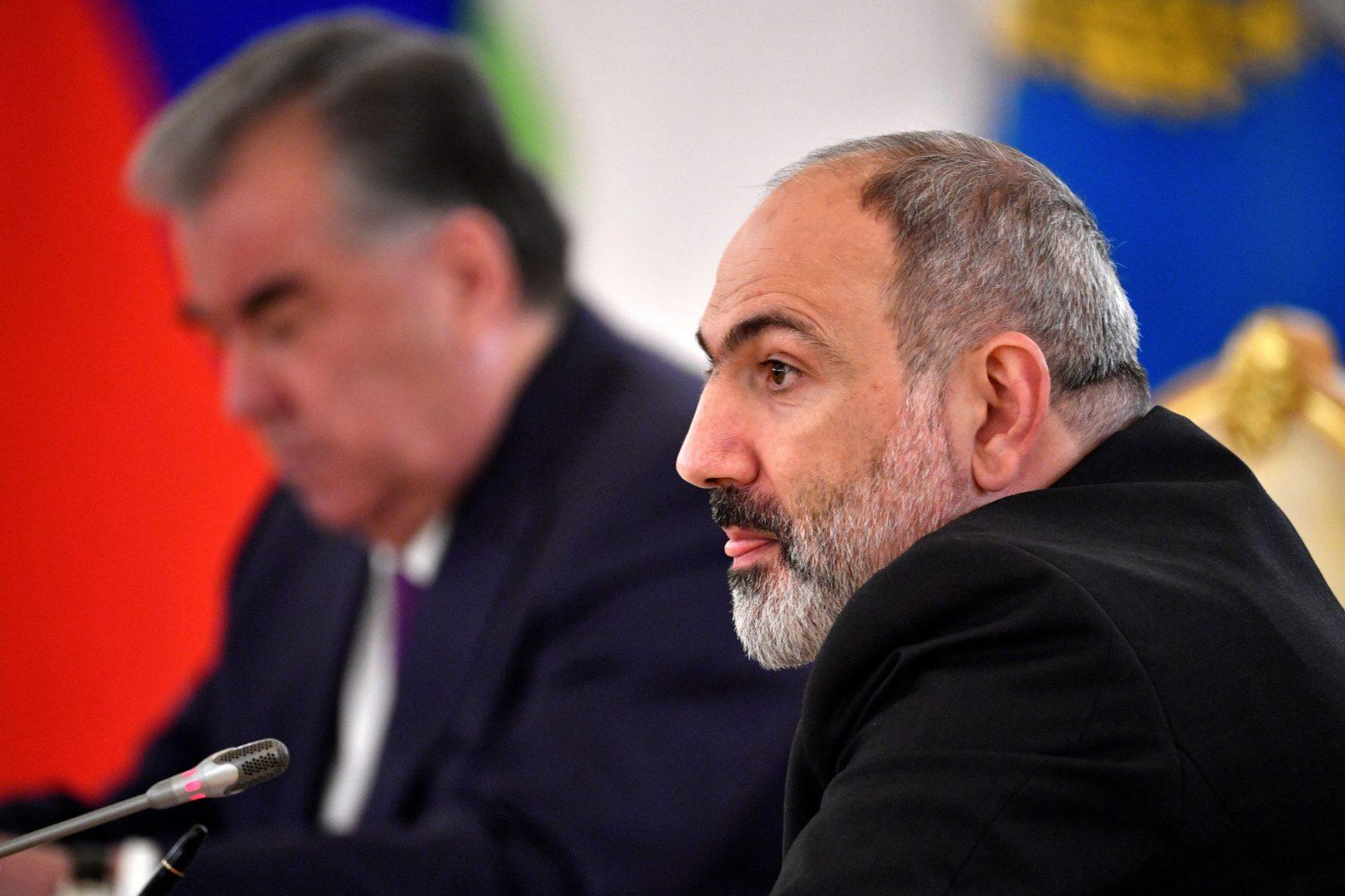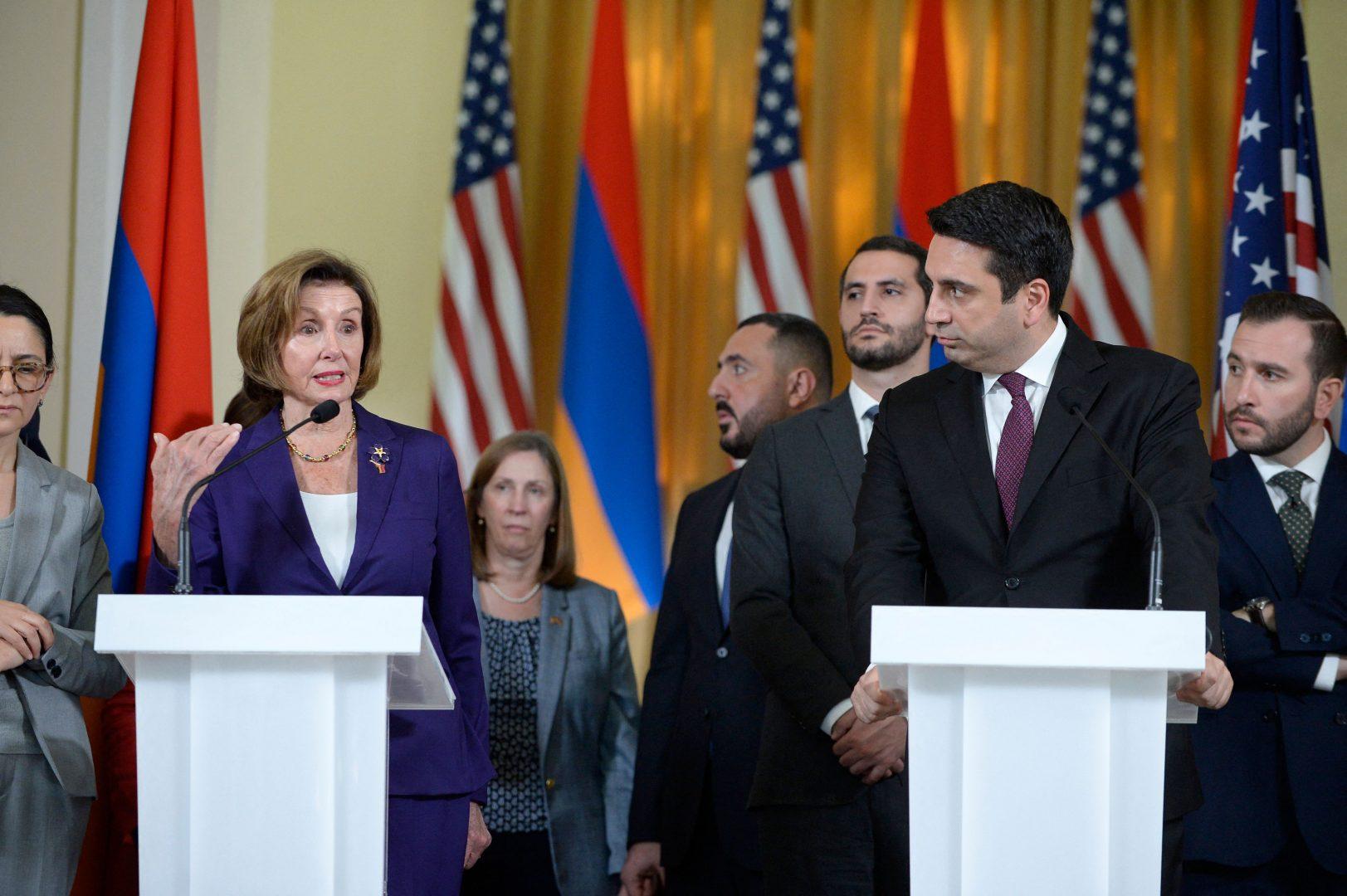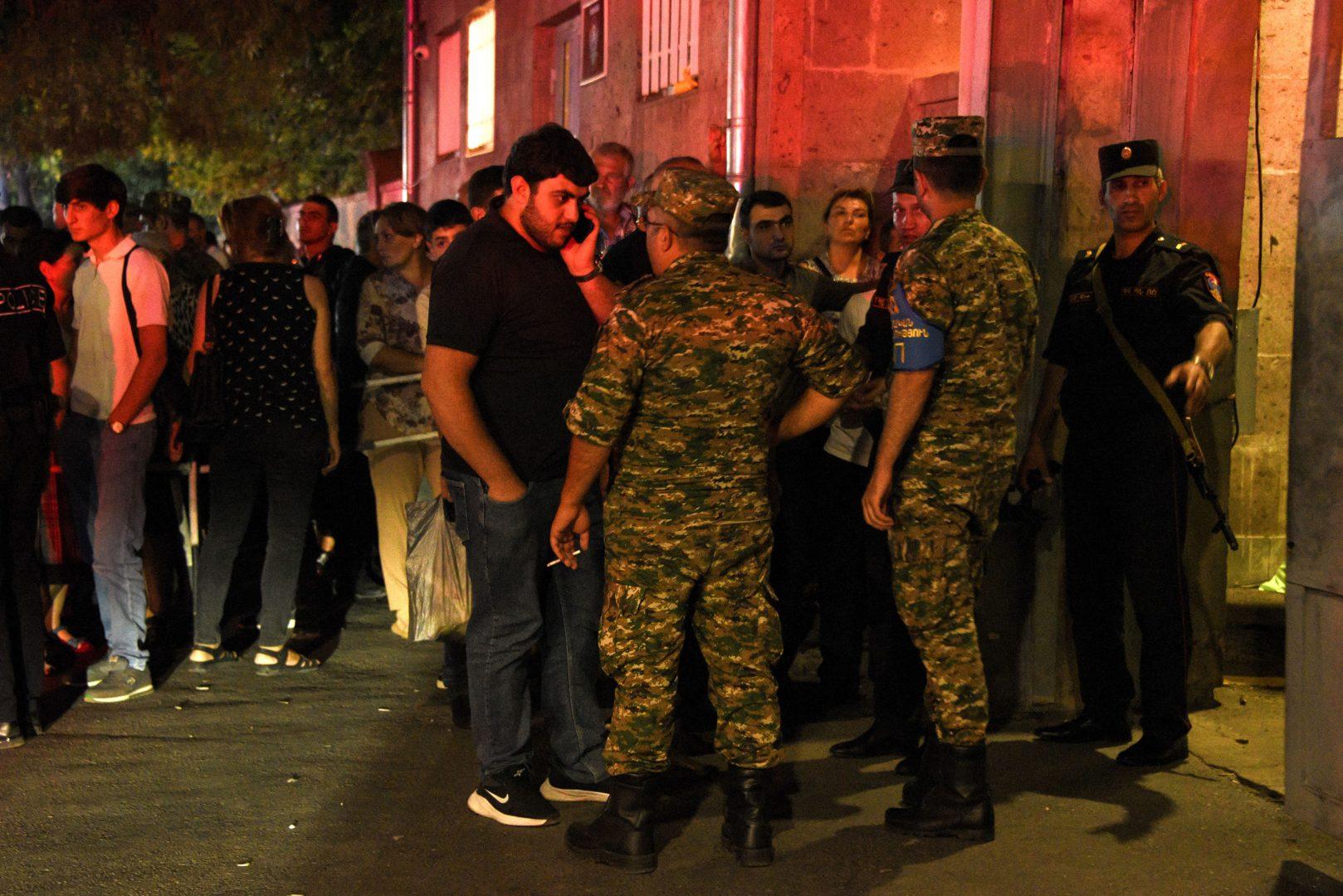Fresno State student Edward Thurber flew to Yerevan, Armenia, in August to study abroad for the fall semester after receiving a scholarship to travel abroad as part of his Armenian Studies program.
From the moment he landed, he was intrigued by how different the country was from America.
“I basically had to learn a new way of understanding the world in Armenia,” Thurber said.
At the time, he thought that would be his biggest struggle. He did not know what would happen only a month later.
On Sept. 13, nearly 100 people died in an overnight battle between Armenia and Azerbaijan’s armed forces. Armenia’s Prime Minister Nikol Pashinyan said 49 of those soldiers were Armenian, while Azerbaijan’s defense ministry said it lost 50.
Being Armenian himself, Thurber, who was a former Associated Student Inc. presidential candidate, had spent the first month reconnecting with his culture and meeting people with connections to his family.
This is why he had a particularly “heavy heart” when soldiers reignited a decades-long conflict with its neighboring country just several miles east of where he was living.
“It was hard to feel anything immediately because we didn’t know what was going on… Personally, it was a very surreal time because coming from America, I haven’t experienced this kind of warfare,” Thurber said.
The cause of the conflict between the nations is reported to be a continuation of a decades-long fight in the Nagorno-Karabakh region, which is a conflicted region controlled by Azerbaijan.
However, Fresno State professor Barlow Der Mugrdechian, department chair of the Armenian Studies program, said September’s bloodbath has “greater implications” than just territory.
“The country of Azerbaijan is actually now attacking the country of Armenia, their territory, sovereign territory, and Armenians have been attacked with missiles and rockets… So it’s a very dangerous period for Armenia,” Der Mugrdechian said.

Thurber agreed with Der Mugrdechian, saying this is one of the first times Azerbaijan intentionally attacked Armenia’s borders.
Fresno State student Sara Beberian, who is also president of the Armenian Student Organization, said she felt sorrow when the news broke about September’s conflict.
“There’s definitely a feeling of helplessness because you donate and do so much, but I can’t really do anything personally,” Beberian said.
She grew up attending the Charlie Keyan Armenian Community School in Clovis and went to St. Paul Armenian Church. She said she found her identity in her culture, learning the language and history. For Beberian, advocating for Armenian aid is very important.
“It’s also hard when you hear about one Armenian dying. It’s like we’re already such a small [community],” Beberian said.
The nation’s population is around 2.7 million people, around half the population of the Central Valley.
After several more days of fighting, from Sept. 12-14, more than 170 soldiers were killed on both sides.
Armenia and Azerbaijan agreed to a cease-fire on Sept. 15. By Sept. 19, more than 200 soldiers had been pronounced dead, according to AP News.
Since the 1980s, the two countries have been at war multiple times. Both were under control of the Soviet Union and later gained their independence. However, it left the Nagorno-Karabakh region a place both sides would fight over, leaving behind thousands of casualties.
The latest three-day conflict was one of the deadliest since the 44 Day War from September to November 2020, which left 94 Azerbaijani civilians dead, 400 Azerbaijani citizens wounded and at least 2,425 Armenian servicemen killed, according to AP News.
Beberian said she remembered protesting in Fresno when the war started, and pro-Armenian demonstrations were in Los Angeles, France and Italy. She said the same thing is happening now that the world is not paying attention to the current conflict, while Armenia needs the American aid.
Der Mugrdechian said this is a “proxy war” with many other nations like the U.S. and Iran with involved interests in the Nagorno-Karabakh region. Turkey has shown its support for Azerbaijan, and Russia has peacekeeping soldiers in the region as well.

Both countries are throwing blame at one another, with Azerbaijan accusing Armenia of attacking first. Der Mugrdechian believes this is part of a disinformation campaign of Azerbaijan against Armenia. He said how it started doesn’t matter at this point because Azerbaijan escalated it.
“Azerbaijan has continued to threaten the Republic of Armenia… So it’s not a question of provocation. The provocation comes from Azerbaijan, which is trying to ramp up hostilities, and then they’re the ones that have attacked, so I really do put the blame on them,” Der Mugrdechian said.
Thurber and Beberian both agree with Der Mugrdechian, saying Azerbaijan is wrong and it makes no sense for the Armenians to had struck first.
“With Azerbaijan having Turkey’s support, it would be completely nonsensical for Armenia to launch an assault,” Thurber said.
He said Azerbaijan and Turkey have more of a reason to attack. Armenia borders those two nations, so having that territory connects them and gain power with things like oil, Thurber said.
Der Mugrdechian and Beberian agreed.
Beberian has an additional history with Turkey. Her great-grandmother survived the Armenian Genocide and fled the region that is now Turkey.
“If I wanted to go back to my homeland, which is now in Turkey, that’s really hard, and then the worst part of it for Armenians is that there was never recognition for this genocide,” she said.
Azerbaijan denies the existence of the genocide and Turkey is known to support the decision, according to Reuters.
Azerbaijan proponents also argued the break from the Soviet Union and the war between Armenia forced over 400,000 Azeri refugees to flee their homes within Armenia to Azerbaijan due to persecution, according to the European Politics and Policy blog.
Beberian said Armenians are split on whether or not a cease-fire should last with Azerbaijan.
“I think that’s where Armenia is at fault. A lot of Armenians will fight with each other and say we can make peace… but [Azerbaijan] has shown us time and time again that they will keep shooting. They don’t care,” she said.
Der Mugrdechian encourages the Fresno State community to donate to and learn more about Armenian organizations like 2022 The Armenian Assembly of America, Armenian National Committee of America and The Hayastan All-Armenian Fund
“You have to have support through all of the different clubs, organizations, student body and the administration. Everybody should be interested in what’s happening,” he said.
Beberian said Turkey should apologize and recognize the Armenian Genocide to create peace between the two countries. She also wants U.S. sanctions against Azerbaijan and more aid to Armenia.
“I hope that there is U.S. military aid. It’s just so sad for me because I just know none of this is going to happen, but I hope it does. Just for the future of Armenia and so that my kids have a homeland to go to,” she said.
Thurber said America needs to cut all ties with Azerbaijan because there is no real cease-fire and a battle can break out any moment. Like Beberian, his family also fled Turkey during the Armenian Genocide, so for him, it feels like his people are being forced out of their homes again, he said.
“I would characterize this as Turkish imperialism,” he said. “It’s a huge weight on me to think that parts of modern Armenia are potentially going to be occupied land… So it’s really painful to see history living itself out.”




